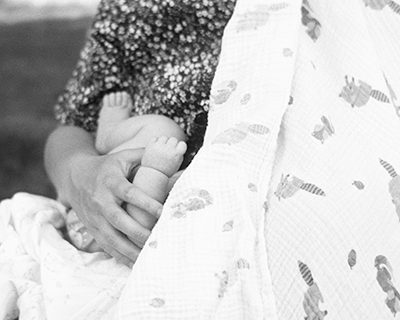The Pandemic is a Chance to Rethink the Care Economy
A working mom explains why paid and unpaid care workers are the undervalued backbone of our society.
2020 has laid bare the challenges faced by working parents. As a working mother in the thick of the pandemic — with school closure, constant child and home care, and a thriving career battling for attention — I have viscerally felt the impact of economic, financial, and social structures designed without gender equality in mind.
Like me, working mothers around the world were marooned without the safety net of school, daycares, and other childcare options. The weight of care in most families with two working parents has mostly landed on mothers.
When the first lockdown kicked off in March, I found myself taking care of meals, laundry, cleaning, and consoling my kids, who were anxious about Covid-19, before burning the midnight oil to finish up work. As an investor and advocate for gender equality, the quest to support gender-smart solutions is both my day job and my passion.
Some days, my 3-year old son sang “Eye of the Tiger” right when I was in the middle of a strategic work call.
There were days where my husband and I literally did a childcare switch a minute before a virtual meeting; I’d arrive on Zoom feeling discombobulated. Some days, my 3-year old son sang “Eye of the Tiger” right when I was in the middle of a strategic work call; I’d make a joke and weave it into the conversation.
Knowing I am not alone kept me going. Other working parents (mostly mothers) share similar stories. We have not only exchanged experiences, but also created shared databases of educational tools, kids’ yoga videos, arts and crafts ideas, and tools and tips on how to make homeschooling work. For the most part, it was us, mothers, making these plans and, in some cases, leaving our jobs to be more present.
But this is not just a mother’s problem. It is everyone’s issue: the care economy — that is the paid and unpaid workers, organizations, and systems that provide education, healthcare, domestic support, child care, and elder care — is the undervalued backbone of our society. Covid-19 has shone a bright light on the inequalities that contribute to this system. It also offers us an opportunity to reframe how we think about the care economy and reap its benefits. If we close gender equality gaps, we could boost global GDP by US$13 trillion, according to McKinsey research.
A sea of rafts, yachts, and boats
For me, the pandemic conjures up an image of boats of different sizes and standards navigating the same rough seas. Some of us have rafts with holes and water is pouring in. A few have yachts! For those with an army of nannies and household staff, care might not have come to a standstill at all. At the other extreme, the increased care burden created by school closures and the pandemic recession is expected to increase child marriage in poor countries.
In order to reimagine the care economy, we need to shift from defining care as an individual burden mostly shouldered by women, to looking at the care of our young and old as everyone’s problem. If care is not treated as a collective social responsibility that affects the well-being and productivity of all members of our society, it will be impossible to come up with new definitions or solutions.

We need to explore what this looks like as a society. For example, organisations—both big and small—need to explore how workplace arrangements and policies can better support caregivers. The pandemic has helped with this shift, prompting more companies to accept working from home and flexible work set-ups as the norm. The International Labour Organization even released a Practical Guide on Teleworking. This shift can help make the workplace more supportive for those with care obligations, ranging from families with young children to ones caring for the elderly.
Time to change the narrative
We also need to unpack the gendered nature of care and the burden associated with it. Globally, women spend two to 10 times more time on unpaid care work than men. This decreases their labour force participation, wages, and job quality. After childbearing, women also face a loss of earnings known as the “motherhood penalty.” Even in a fairly forward-thinking country like Denmark, an average mother’s earnings penalty doubled from 40% in 1980 to 80% in 2013.
Secondly, we must talk about how much family structure has changed — in terms of make-up and shifting responsibilities. By better understanding the cognitive labour and gender roles that persist in households, we can work towards enhancing gender equality. I am grateful for a supportive partner with whom I can walk this talk together, finding ways to have a more balanced setup that works for us all
We need a parallel dialogue that broadens the understanding of what work is considered essential, For instance, research by the Brookings Institute spotlights the importance of acknowledging foundational work and services such as healthcare, food supply, grocery retail, garbage services, care aides, cleaners, and more. The low prestige associated with many of the roles in these sectors is maddening considering that none of us — rich or poor — would be able to function in modern society without our garbage being collected or food reaching our grocery stores. While some of this work is captured in GDP, not all of it is, given the prevalence of informal workers in these sectors.
Globally, women spend two to 10 times more time on unpaid care work than men.
We also need public sector involvement. In fact, a briefing by the UK Women’s Budget Group, which scrutinizes policy from a gender perspective, shows that investing in the care economy, which enables more women to work and thus increases GDP, is more effective at reducing public deficits and debt than austerity policies. By investing in education, healthcare, childcare and social services, governments can help shore up the economic and foundational pillars that allow the wider economy to function. According to the Women’s Budget Group, an investment in care industries equivalent to 2% of GDP, could create 1.5 million jobs — 750,000 more than an equivalent investment in the construction sector, which is often a beneficiary of economic recovery programs.
The Indian activist and writer Arundhati Roy wrote that “the pandemic is a portal,” and urged us to walk through it and create a better world. I commit to support dialogue and action that ensures those we care about — and who care for us — are treated equitably and equally valued. Now is our time to create new systems that work for everyone.
Print Issue: Winter 2021
Print Title: Caring About Care
